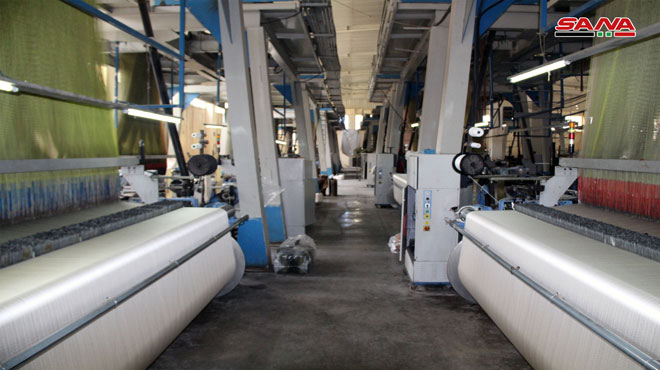15 industrial facilities have resumed production in the industrial city of Sheikh Najjar, after being repaired during the first quarter of 2019, bringing the total number of the industrial facilities put back into service to 550. These rehabilitated facilities cover several industrial fields such as engineering, textiles, food, and chemicals.
Head of Sheikh Najjar, Hazem Ajjan, told SANA that work is underway to restore and rehabilitate another 175 industrial facilities, and that 50 new building permits have recently been given to investors and industrialists for the purpose of setting up new factories, pointing out that over the past two years, the number of industrial lots given to the industrialists had reached 556.
Ajjan pointed to the facilitations and tax exemptions granted to investors, aimed at encouraging them to return to their facilities in the industrial city, adding that progress has been made in providing basic services, including water both for drinking and industrial purposes, while work is underway to increase the number of electrical grids.
He added that the studies for the first stage of the handicrafts area have recently been completed, and that it will provide 800 lots, which will be put up for investment in the coming days, in addition to resuming work on the workers’ housing areas.
SANA toured a number of the industrial facilities that have resumed production, including a textiles and upholstery facility, whose owner Tareq Jin Ali, indicated that he returned to his facility and resumed production after making repairs and installing new machines.
Mohammed Wafaee, and owner of a facility for the manufacture of plastic and home furniture, affirmed his determination to resume production of plastic chairs and house supplies, to provide the local market’s needs and export excess production.
Mohammed al-Abeid, an owner of a facility for the manufacture of snack foods such as biscuits and chips, said that he has resumed work and is producing high-quality healthy products, in addition to providing job opportunities.
Meanwhile at al-Dabbagh textiles facility, Abdelbasit Hammaden talked about the maintenance and restoration work that has been carried out at the facility, which had sustained damage at the hands of terrorists, saying that six machines for making curtains have begun production a month and a half ago, and he’s still working to repair the rest of the machines.
This article was edited by The Syrian Observer. Responsibility for the information and views set out in this article lies entirely with the author.


